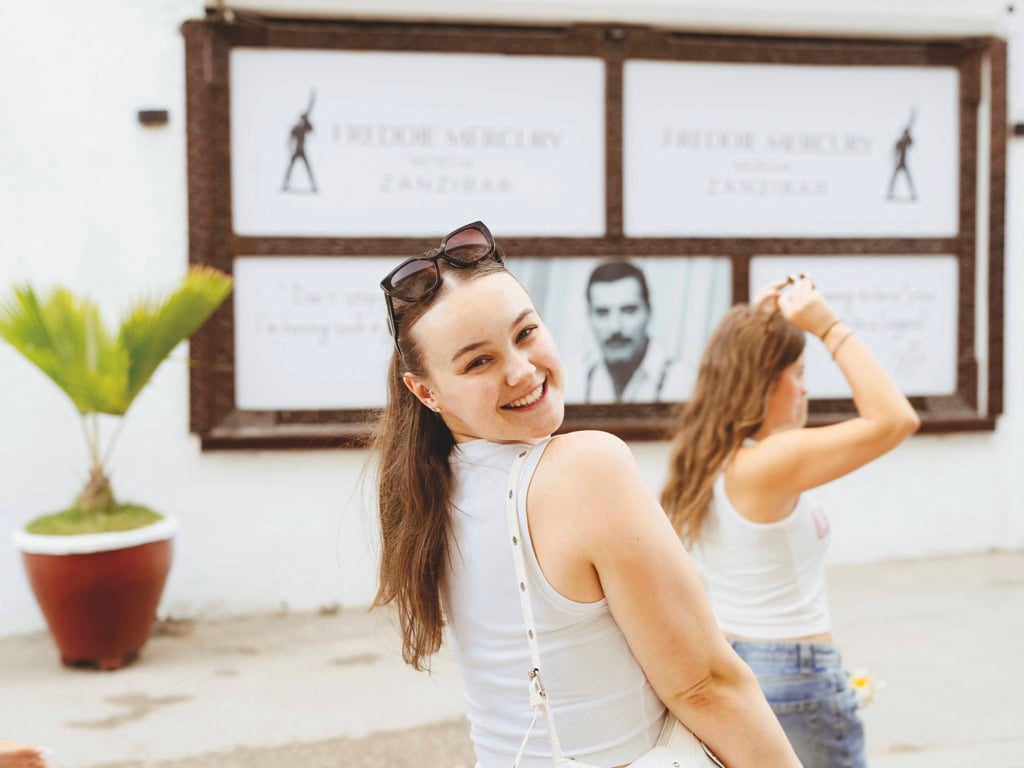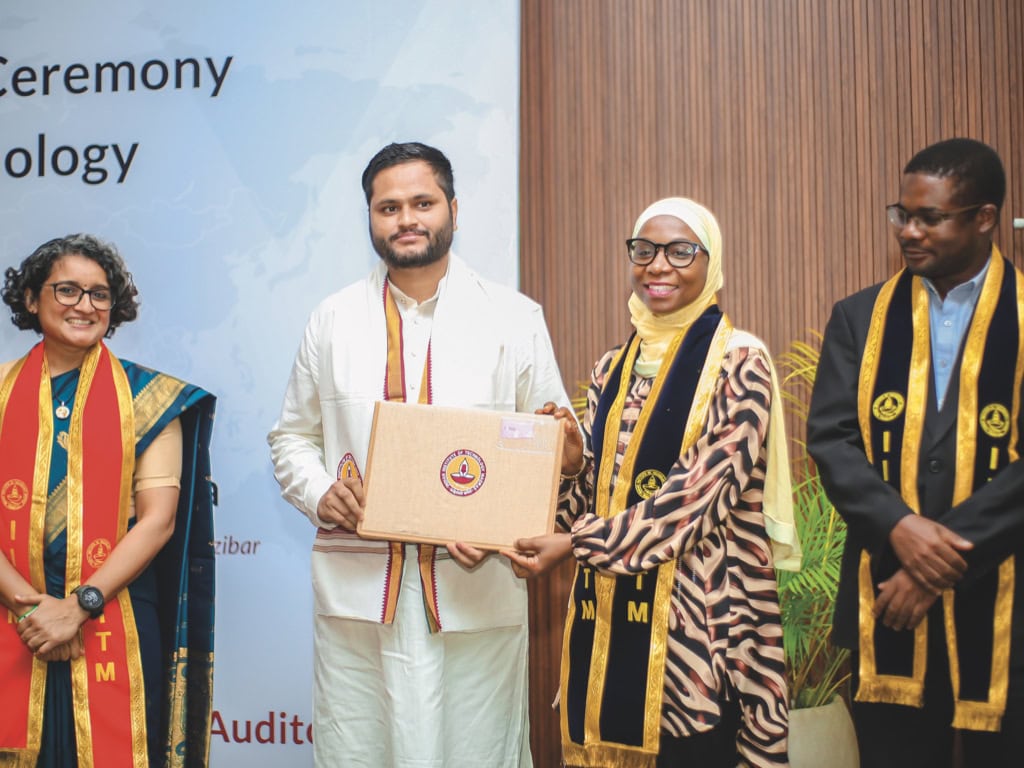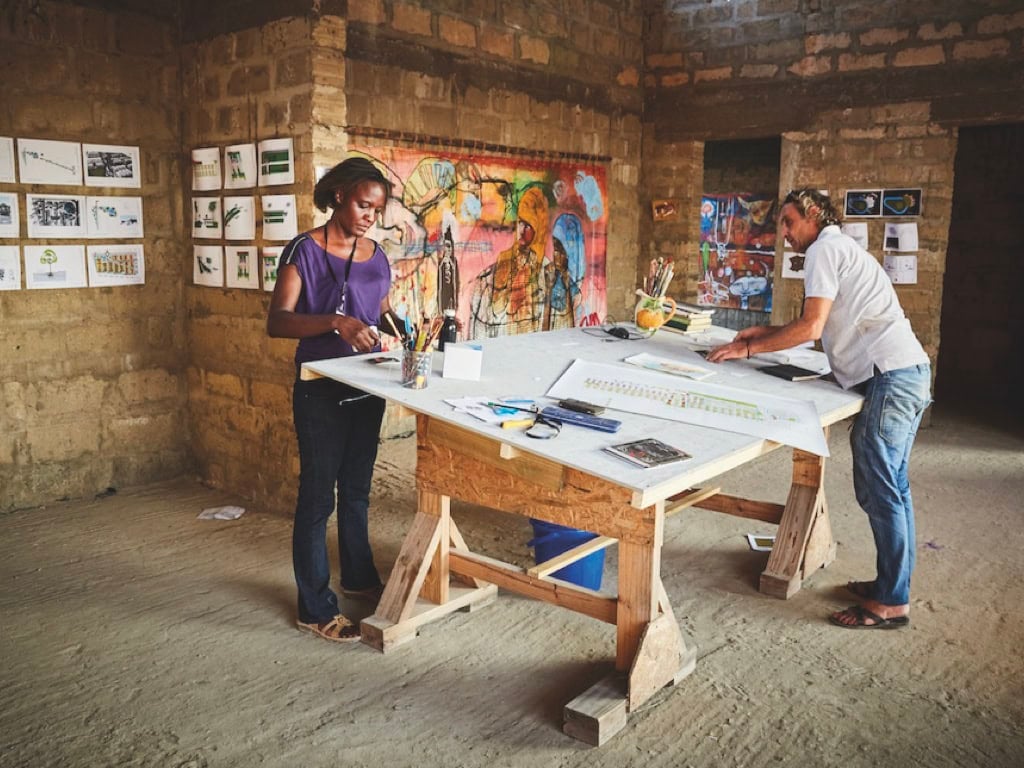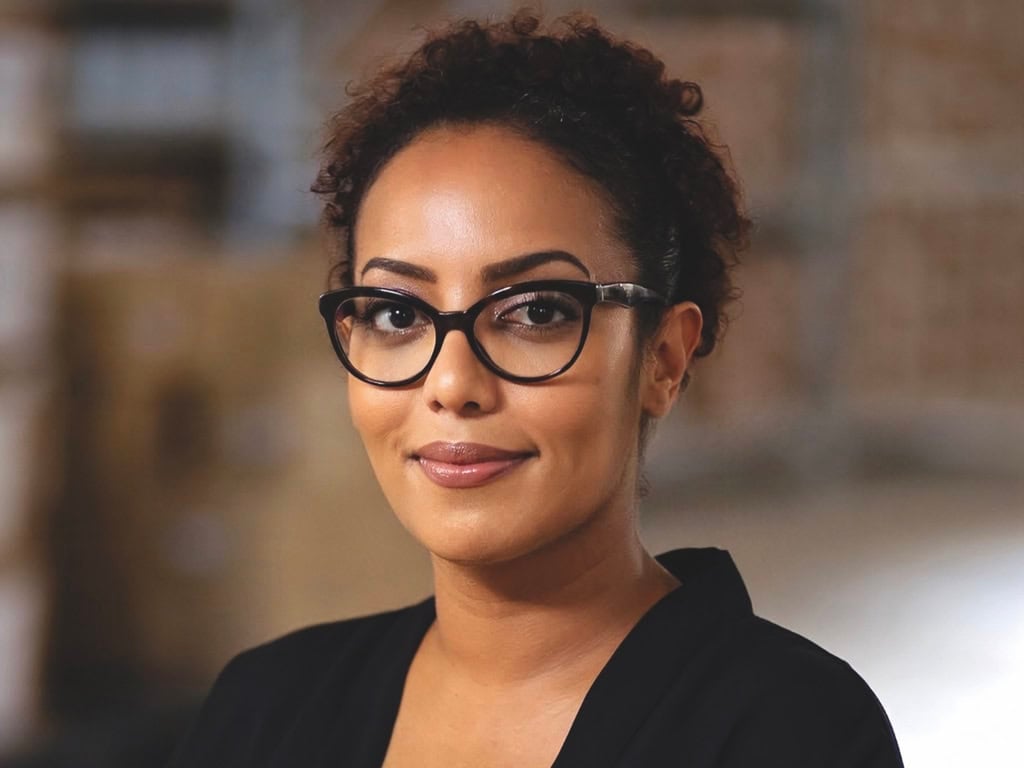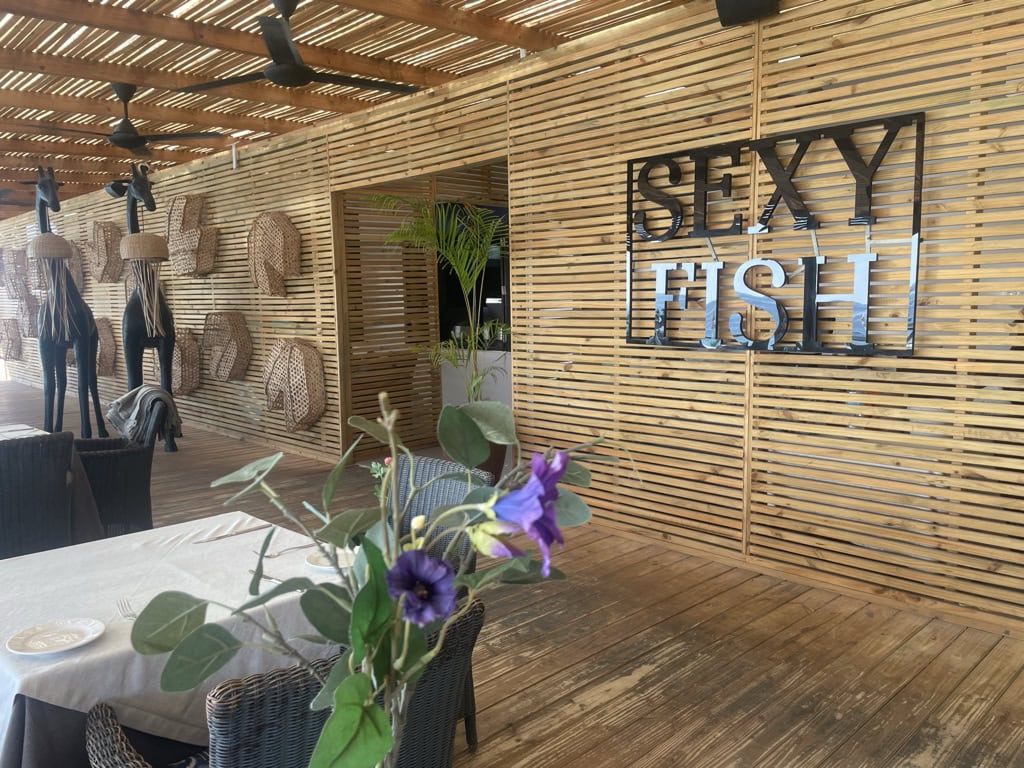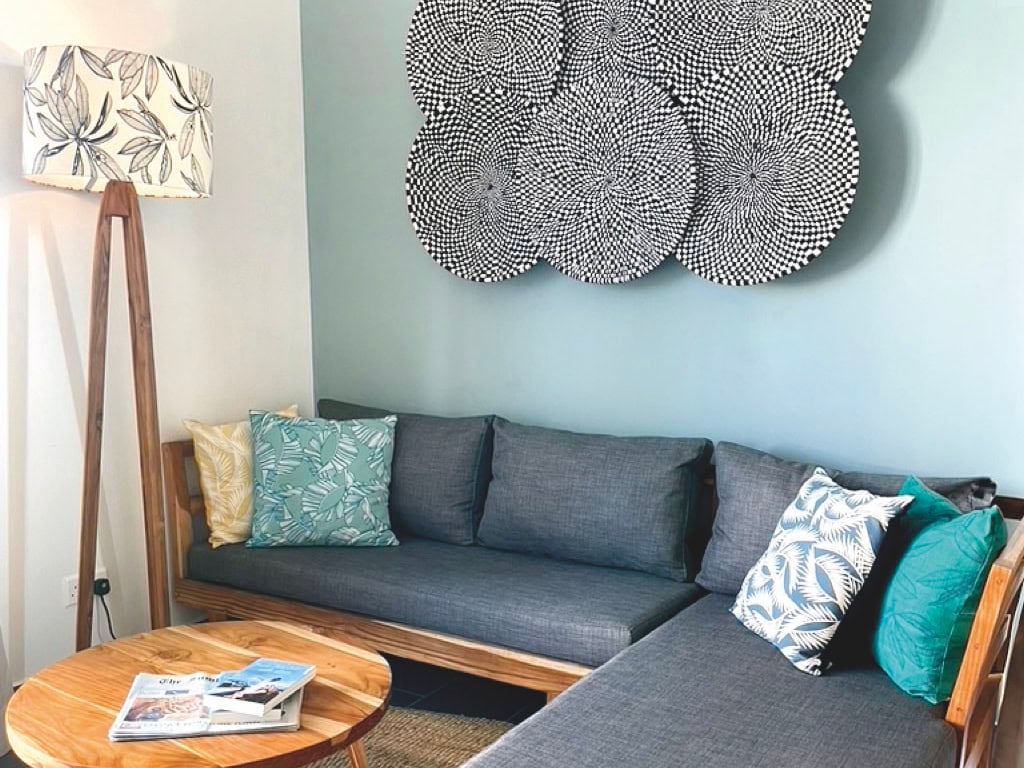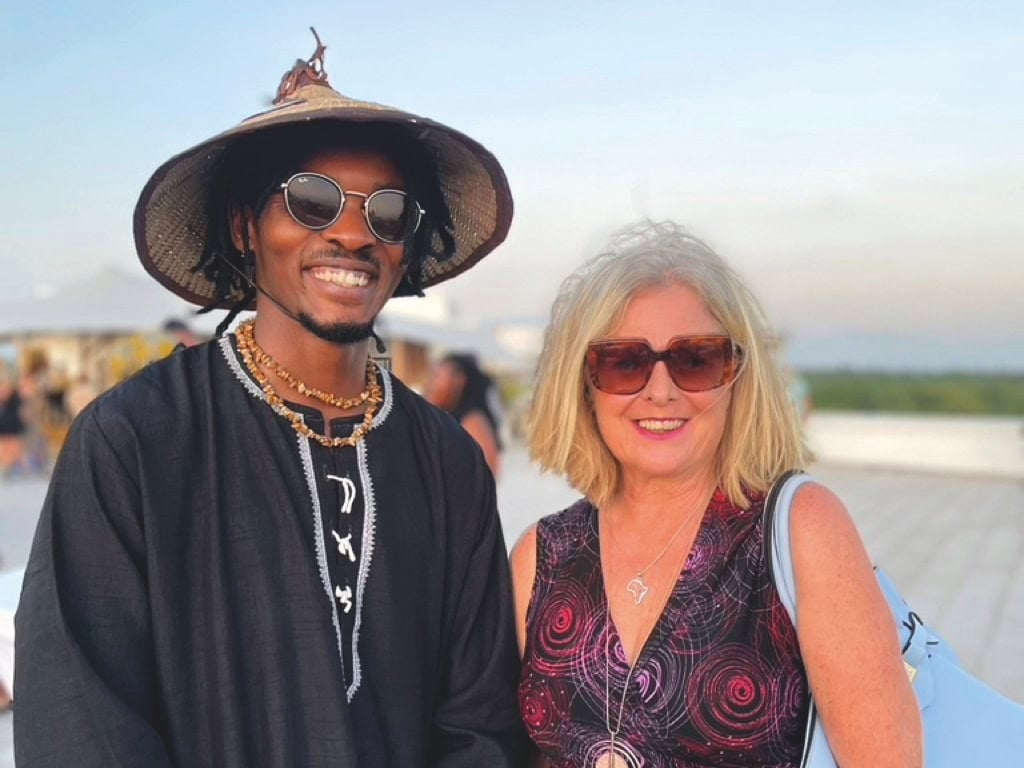Urban Pioneer Fumba Town
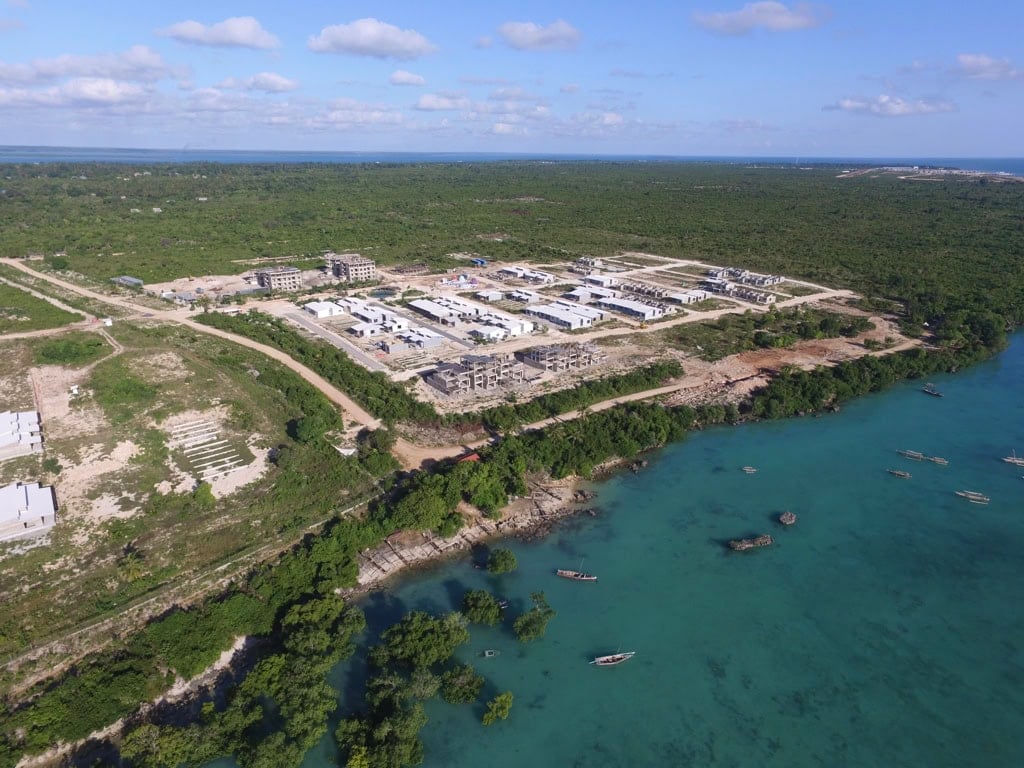
By Andrea Tapper
From vision to vibrance: green city for holidaymakers and residents in Zanzibar turns ten
First it was an idea few people believed in. Then it became the island’s biggest real estate success. Now it is East Africa’s fastest growing urban development. Fumba Town on the shores of the Indian Ocean is turning ten years old.
The story of the cosmopolitan African future city – for many Zanzibar’s most unexpected highlight – began under a Mango tree in Nyamanzi. In 2012, village elders, government representatives and a German family started discussing a deal which would wake-up the sleepy Fumba peninsula forever. The deal was to develop houses to absorb Zanzibar’s growing population. In August 2015 the agreement was sealed, and two show houses erected in the middle of nowhere. Spread out on 150 acres with 1.5 km of west coast seafront, Fumba Town is located 12 km south of the airport, only a 30-minute drive from Zanzibar city. From the beginning it was meant to be an overflow for the capital, a model city for local and international residents, a mixture of investment, living space and holiday homes.
Since then, for the creators of Fumba Town there has been no looking back and “time has flown by”, says Tobias Dietzold, 41, one of the directors of developer CPS, who brought the town to life in tandem with his elder brother Sebastian and wife Katrin.
To date, almost 1,400 apartments and houses have been sold. On any given morning, employees flock to their offices at the new Pavilion mall – completed in 2022; youngsters from Zanzibar City drive in at night to treat their girlfriends to dinner at the bohemian open-air restaurant “Kwetu Kwenu Chill” – opened the same year. Kids play at creative adobe playgrounds on colourful structures – the town’s first communal offering in 2019.
Immense trust
“It’s an awesome development”, remarks Tobias Dietzold in his office on site, looking not without pride at his “urban baby” embedded in lush green gardens against the perfect turquoise backdrop of the ocean: “But from permaculture to a Hilton hotel in the making, we could not have invented it alone, it grew together naturally.” His brother Sebastian Dietzold, 49, elaborates: “It was one of our biggest astonishments and joy, that international investors placed immense trust in us right from the start” (more of his memories on page 4 –5.)
Pioneering legislation
The story of Fumba Town is a story of many firsts. For the first time, foreigners were allowed to buy in Zanzibar on the base of a 99-year-lease arrangement. Located in one of five Free Economic Zones, it offers attractive tax incentives. Fumba is “a pioneer for urban planning utterly needed in Africa with its high population growth”, says Canadian economist and urban planner Kurtis Lockhart, a resident of Fumba.
In Zanzibar alone, the tropical holiday island in the sun, the population has grown by almost 50 per cent in ten years, from 1.3 million to two million inhabitants. Only half the size of, for example, Majorca, it has double the population of its Spanish counterpart. “Every year 10,000 new homes are needed”, says Lockhart, who has been instrumental in connecting Fumba to the academic world. This also has good reasons: Institutions of higher learning can act as “anchor tenants for urban development just like software in Silicon Valley and biotechnology in Boston have done”, Lockhart explains. The prestigious West African School of Economics (ASE) has run a first master’s course in Fumba. India’s best university, the Indian Institute of Technology Madras (IITM), opened its first international campus right in the neighbourhood two years ago – and just had its first graduates (see news item on the right).
To be a talent hub, to create jobs, to jump-start industries – all this is part of the vision. Developer CPS and affiliated firms such as the Permaculture Design Company (PDC) – the green backbone of Fumba – and timber processing Volkshouse have opened-up more than 800 jobs.
Growth fosters variety
Tobias Dietzold explains: “First we were planning only 400 townhouses, the prototype white bungalows of Fumba Town. The current masterplan contains already 5,000 homes in 40 different designs, from budget studios to luxury villas, all benefitting from the common infrastructure and green concept. „While differing in size and price, all Fumba homes share high-quality living environments making use of local resources”, explains Leander Moons, lead architect of Fumba.
“Green is our currency”
Ten years Fumba Town: A lot of progress has been made but there were (and are) also manifold challenges. Endless bottlenecks at the port for construction material, mishaps with contractors. The aggressive tropical climate eating away at facades which had to be repainted earlier than thought. Street lights are still in the making, as are street names, but an artificial beach with ocean access and a pool have been created – much to the pleasure of residents. And the vision remained intact: “It was always clear that we wanted to be different from any conventional housing projects. To be green and family friendly is our currency”, says Katrin Dietzold, mother of four and a political scientist by profession. The eco approach is ubiquitious: ten years after the start, a canopy of 150 local plant and tree species covers the town, and has grown to about five metres height, cooling down temperatures by up to six degrees.
A growing number of houses built with engineered timber are binding Co2. In-house composting and recycling with affiliated companies take care of around 80 per cent of household waste. Permaculture masterplanners Franko and Bernadette Goehse, from Germany and the Philipinnes respectively, have carved the very foundation of Fumba Town practically out of mother earth. “We crushed coral stone, shredded bush and spread out cardboards to turn it into soil”, they recall the early days. And the biggest green highlight is yet to come: the 27-floor Burj Zanzibar, aspiring to become the highest engineered timber tower in the world. Breaking ground is expected next year. Fumba Town seems ready for the next chapter.
- 1,400 homes sold
- 2025: 2,000 inhabitants
- 2035: 20,000 people
- 2050: 80,000 people (projected)
- Investors from 60 nations
- 150 acres, 1.5 km seafront
Homes from US$ 40,000 to US$ 950,000 in one development
Share


